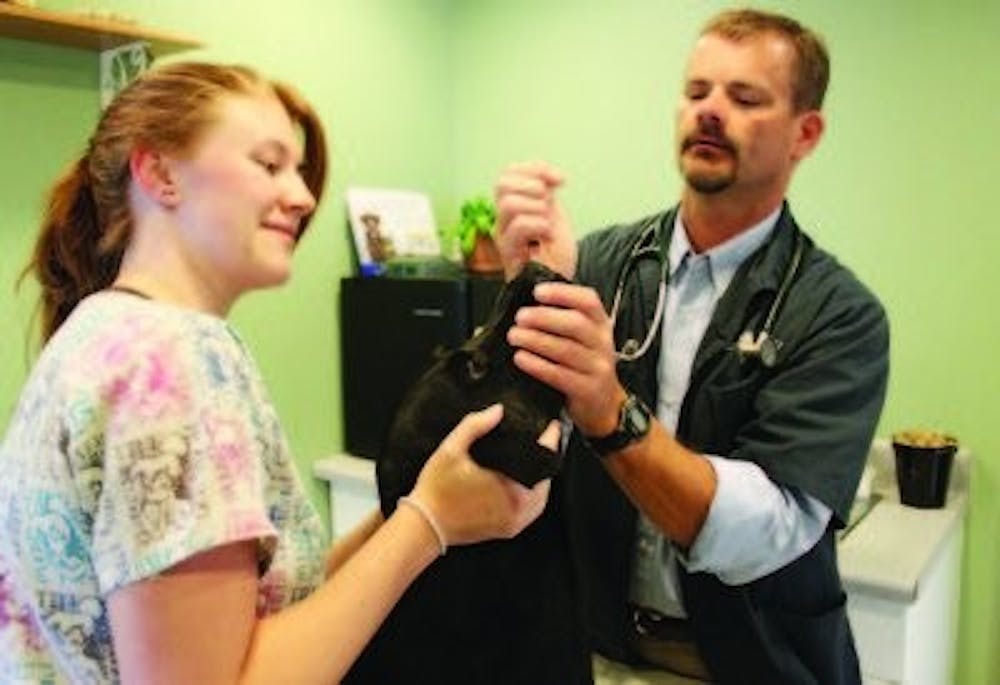Before boarding dogs at area kennels, pet owners must have their animals inoculated with the H3N8, or canine influenza vaccine.
Christen Bromberg of For Paws Boutique in Auburn said her facility will be requiring the vaccine for all boarded dogs as of Nov. 15 because several veterinarians in the area recommend doing so.
Dogs in 30 states, including Alabama, have been diagnosed with canine influenza, or dog flu.
Dogs have no natural immunity to the virus, and it spreads quickly through contact with contaminated objects.
However, while the virus can spread between infected and uninfected dogs, humans are not directly at risk.
"There has never been any recorded case in humans--canine influenza is different than human or seasonal influenza," said Carol Rubin of the Centers for Disease Control and Prevention in Atlanta, Ga.
Symptoms of canine influenza are vague, usually including a mild cough and runny nose lasting 10 to 30 days.
In some serious cases, secondary bacterial infections such as pneumonia can develop, potentially leading to death.
However, dog flu is easily treated with antibiotics.
The mortality rate is less than 1 percent of all infected cases.
Diagnosing the cause of the symptoms requires special blood-sample testing because it is difficult to distinguish from kennel cough and other respiratory diseases, according to Ted Albert, veterinarian at South College Veterinary Clinic.
"The cases I have had have responded well to tetracycline," Albert said. "That's more characteristic of a bacterial infection than a virus."
Boarding kennels, racetracks, dog shows and shelters are the types of high-density situations where dogs could come into contact with the flu.
The vaccine must be given in two doses, two to four weeks apart.
"There is a vaccine available, and it seems to be effective and without side effects," Rubin said. "And if the dog is in a situation to get exposed to it, it might be a good idea to get vaccinated."
Albert also offers the canine influenza vaccine.
"We carry it because we've had a number of people ask for it," Albert said. "I know some of the local kennels require it before you can board your dog, like For Paws."
Albert said there are some dogs that are at higher risk and probably should be vaccinated, such as the snub-nosed breeds, like pugs and bulldogs, and dogs that have pre-existing lung diseases or congestive heart failure.
"My concern is adding another vaccine to an ever-growing list of vaccines at a time when people are already vaccine-shy and hurting financially," Albert said. "What I do not want to see is someone skipping their dog's heartworm preventative or passing on getting a microchip because they are afraid their dog is going to die from influenza."
If money is the deciding factor, go for the heartworm or flea preventative, Albert said.
"It's not one I really recommend to most people, but then I don't go down and get a flu shot every year myself," Albert said. "I do recommend the kennel cough vaccine though."
Do you like this story? The Plainsman doesn't accept money from tuition or student fees, and we don't charge a subscription fee. But you can donate to support The Plainsman.





